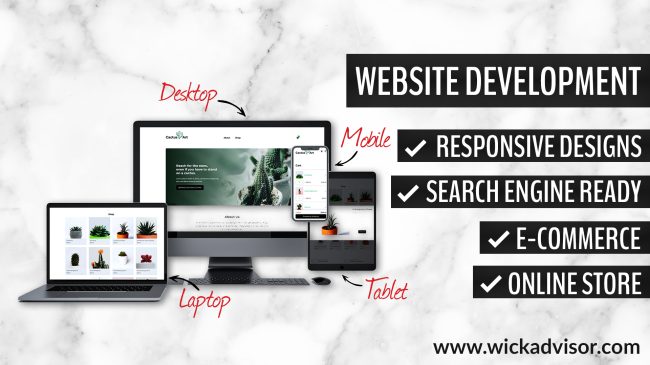5 Reasons why Startups fail
Many people consider businesses risky. And with good reason. According to Small Business Trends, more than half of startups close before the four-year mark. Such a statistic is alarming and terrifying. Yet, there are those who succeed. Those who succeeded were aware of the dangers, and made sure they were equipped to tackle them. Keep reading to find out more about what exactly hinders startups and what you can do to shield you and your business from it.
Reason 1: Failure to find out the needs of the customer.
Why would a customer buy something that does not meet their needs? Business that do not understand their customers will not be able to provide products and services that addresses their customer’s problems. They may begin a promotion at a wrong time, or set operating ours that clash with their customers’ schedules. All of these setbacks kill your appeal in the competitive market out there.
An entrepreneur should “walk in the shoes” of a customer, engage in fruitful dialogue that communicates the customer’s needs. Speak to them, engage them on social media, conduct a survey, experiment with the market, anything that gets you an idea of what they want will allow you to decide what to sell. By understanding a customer’s issues, you can identify a problem that your customers face, and then market the solution to them.
Furthermore, understanding a customer’s behaviour lets you identify how to market your product to them, how to best relay information concerning your business to them. Having your message heard is key. You are wasting precious time and resources if you say something and no one is there to listen.
Lastly, you should understand what a customer hopes to achieve and what they believe in. This will ensure you are relatable to your customers. A customer is more likely to patronize someone whose ideals align with theirs.
Reason 2: Being just another business/enterprise.
Startups face stiff competition for customers, innovations and ideas, resources and more. There is a race to acquire a share of the market and build up a good rapport with your consumer base.
A startup that fails to define itself, to find its niche, to impress its customers, will find itself suffocating as it barely scrapes through with hair-thin profit margins. Progress under these circumstances will be slow, and if left unfixed, you will be just another startup forever.
Creating an identity that separates your startup from the mediocre masses will draw customers to you. You must have a brand, a style that is uniquely yours. It may not appeal to everyone, but as long as customers can identify with you, you got this. In short, the last thing you want is to be forgettable.
If you were 1 of 5 shops that sold roughly similar products and roughly similar prices, each shop will share the market equally with their competitors. If you intend to grow and profit, you need more than just being average. You need more of the market. When more businesses enter your turf, and they will, your market share will get smaller and smaller unless you do something. You need to carve a niche and an identity for yourself. This will let you hold onto a large pool of loyal customers. That is how you overtake your competition.
Why is a brand like LiHO everywhere these days? Because they originated from Gong Cha,an established brand with over 80 outlets. Coupled with the release of their cheese tea in 2017, they quickly established their identity and reputation. With so many bubble tea brands out there, this market must be especially competitive, and for LiHO to remain strong, they must certainly be doing something right.
Reason 3: Not communicating your value propositions to your customer.
Failing to get your message across to your customer will render whatever brilliant idea you have pointless. What’s the point of coming up with the dream product if no one understands what you are trying to market? You have put in your blood, sweat and tears on your startup. The only way you can do justice to your effort is to ensure customers know about what you are trying to sell.
Start with being on the same wavelength as them. Take note of the language they speak, the kinds of words they use. Speaking like your customers ensures you can establish common ground with them, and rewards you with the highest chance of being understood by them. Once you have decided on what you want to bring to your customers you have to make your message clear and concise. Make it so that even the common folk and those who are merely browsing will understand and appreciate what you have to say. Once you got everyone’s attention, here comes the most important step. You have to make them want your product.
In recent times, there is no better example than the introduction of the smartphone. Prior to 2007, there was no such thing. So how did Steve Jobs raise a slab of plastic, metal and silicon not much bigger than a Kit Kat in front of a crowd and convince them that they wanted it? How could they want something they had no prior experience with or understanding?
While Apple is a large multinational company, the same principles still apply with regard to delivering an unforgettable message. Steve Jobs nailed the presentation, he made the introduction of his proposition, in this case his product — the iPhone, epic. The master showman in him showed them a product like no other, with its features and its promises. He knew what the 4000 people watching him had come for, and delivered more.
Reason 4: Leadership breakdown/Founder dysfunction.
You may have what it takes to start something. However, keeping it running is another issue. As its founder, you are the centre of your startup. You built it from the ground up. Your startup should share a connection with you. Thus, it is critical that you do not let your flaws start to affect your startup. Self-sabotage has brought low many a great man.
No one is perfect. Start by identifying your shortcomings and fixing them. Like how innovators find a problem and solve them with their ideas, find your flaws and take action, so they will no longer be a detriment to you or your startup.
Just because perfection is unattainable doesn’t mean you have an excuse not to seek it. Investors investigate the character of a founder and their team just as much as the company before they make their decision.
At the end of the day, each person will have their flaws and quirks. Tame them, but don’t overdo it. While you embark on your humble quest for improvement, know that you need to stay through to yourself and your self-image. A splash of confidence and personal style does wonders for a businessman.
Reason 5: Lack of secure revenue.
Your business needs money to stay afloat. Nailing the above points without perhaps the most practical requirement, the flow of money, means that you are only left with an idea you cannot implement, or keep implementing in the long term.
While your business is young and small, you will find your finances needing to be stretched so that every cent counts. Move swiftly and grow fast. Take a running start and race to soar. Once the revenue starts to come in, you will no longer be in the red and you can focus on your next set of plans and developments. Achieve this while remaining level-headed and practical. Do not spend money you do not have or only think you can earn back if the next few steps go as planned. Things seldom go as planned. Have buffers and exit strategies.
You should understand and apply tactics such as Minimum Viable Products, Lean Marketing and Experimentation. Find solutions to get what you want for the cheapest possible. This can be applied to surveys, designing products, or recruiting people.
They say knowledge is power. Now that you know a lot, it’s time to get down to business.
If you are a new startup owner and wish to learn more about owning your first website, do check out our WordPress vs Shopify comparison.







